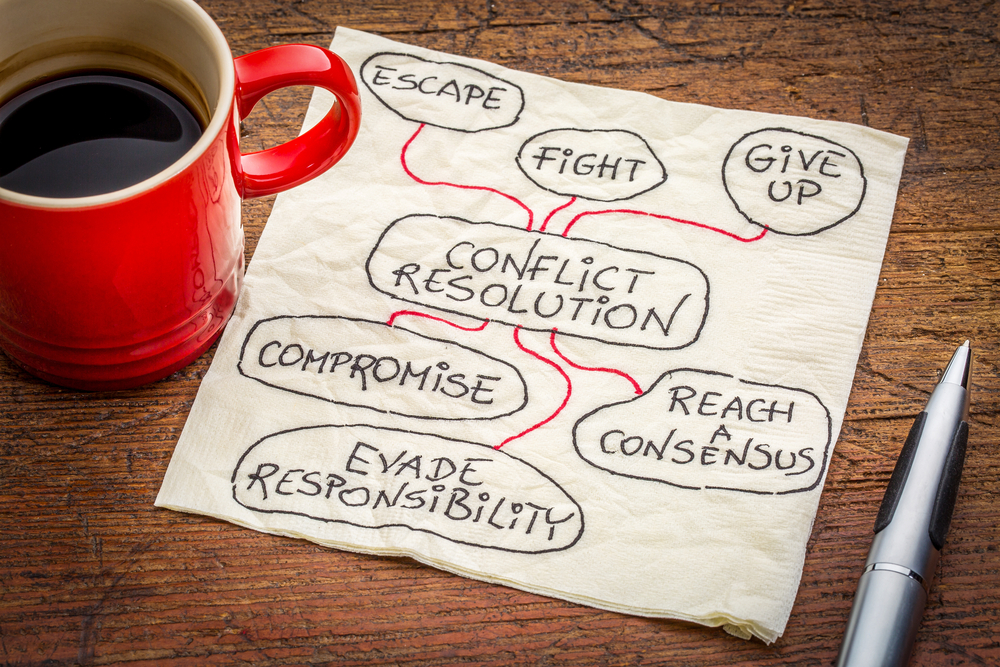No relationship is simple: we often run into conflict, disagreements, and arguments. Naturally, this leads to hurt feelings and results in feelings of tension and resentment.
Every relationship deals with conflicts and disagreements in different ways.
Often when partners disagree, especially frequently, it can be easy for frustrations to arise from a constant lack of communication.
Other times, one partner might be more sensitive to confrontation, resulting in anger or avoidance.
Sometimes our partners get frustrated when we are upset because they don’t know how to help us effectively.
Or they begin to feel defensive, questioning if they are a terrible partner.
If you feel like your partner reacts with anger or frustration whenever conflict arises, here are eight things you can do to help the issue.
Table of Contents
1. Take space to control your emotions

Arguments are a two-way street. Sometimes we react and get upset before we’ve taken time to reflect on our feelings and the issue at hand.
Taking space to deal with the issue at hand allows you to understand why it made you upset. Additionally, you can decide what you need from your partner to move forward effectively.
Along with this, when you take space to control your emotions, you might be able to breathe, exercise, or journal to reflect and relieve some stress. You can also give a friend or family member a call to talk things out! You might even relax enough to no longer be irritated at all.
Taking space to settle down allows you to dissect your feelings before approaching your partner. This way, you can both confront the issue positively instead of with anger.
2. Focus on the issue at hand

Often when we fight with our partner, we can start bringing up side issues or other situations that might be unresolved. This might create increased frustration and tension in our relationship.
You know, when we start arguing with our partner about doing the dishes, and then you bring up that thing your mother-in-law said last week, then you throw in the one time he went out with his friends and didn’t text you all night, and so on.
Once our fights snowball, our chances of coming up with solutions for the issues we are upset about are slim.
Make sure to be clear about what the issue is, your needs and desires, and continue to gently guide the discussion back to the main point.
If you notice that snowballing happens often, focusing solely on the issue at hand can keep you from exacerbating the problem.
3. Identify and communicate your needs

When you get upset with your partner, make sure you communicate your needs instead of just lashing out.
Sometimes we get upset, and we might choose to take a more immature approach: storming off, locking the door, giving them the silent treatment, sleeping on the couch, and so on.
This can cause more conflict and often make both parties even more upset.
Take the space you need – if you feel you need it at the time – to control your emotions and truly identify your needs.
If you are upset about your partner not doing the dishes once again, instead of lashing out, identify why you’re upset.
Are you feeling as though he doesn’t respect your wishes?
Do you feel like he’s taking you for granted?
What is the deeper issue here?
Once you understand your needs, you can more easily communicate your desires. Maybe you want to be shown your needs are valued; once you figure out what is truly bugging you, then you can ask your partner for exactly what you need.
Often when we lash out at our partners because they hurt us, it can create even more conflict and hurt. Make sure you gather your emotions and thoughts to keep things amicable.
4. Seek therapy and support from others

Since our partners love us, they often feel like the people to go to when we are upset or struggling.
Even though this is true, they should not be the ones constantly taking on our hardships and negative feelings.
Our partners have their own issues and struggles; if we continue to unload on them, it can impact their mental health and well-being and create even more conflict in our relationships.
We must protect ourselves and take care of our mental health first. This means finding support in people that aren’t just our partners. Joining support groups, finding a therapist, reaching out to close friends and family, and other networks is fundamental in keeping you feeling happy and loved.
This way, we can share a bit more positivity with our partners and speak to professionals and loved ones when we are upset or struggling.
5. Remember that timing is everything

Often when our partners upset us, we immediately want to bring it up and discuss the issue right away, regardless of what is going on.
Maybe you’ve been mulling over an issue all day at work; as soon as you get home, you want to bring it up and talk it out, even though your partner wants a bit of time to relax.
Or bringing up an issue five minutes before you’re supposed to leave the house for the day – it can only make you feel worse, especially if things don’t get resolved at that moment.
Timing is truly everything.
It’s easy for both partners to get frustrated if conflicts arise at less-than-ideal times throughout the day. Make sure that you only bring up conflicts if you will both be able to have the time to hold a respectful dialogue.
This might even mean planning for the conversation ahead of time to ensure that both partners will be in the best place possible for thoughtful communication.
6. Lay the groundwork for dealing with conflict ahead of time

If you find that your partner constantly gets frustrated when you’re upset, maybe you need to discuss strategies for working through conflicts and arguments.
That way, before the next disagreement arises, you have a plan prepared to make sure that things remain calm during the conversation.
For example, your partner always forgets to tell you their plans and schedule throughout the week, and that makes you feel upset. Maybe a proactive solution involves a shared whiteboard calendar on the fridge for important meetings, dates, and tasks.
Additionally, maybe you have date nights on Fridays where you also talk about ways that you can love and support each other better.
Or, maybe you make sure that you never fight in bed or go to bed angry. This way, if there is an issue you can discuss it at dinner or after a night’s rest.
Whatever you both need to make sure that conversations stay civil and kind is fundamental to make a habit in your relationship.
7. Make requests instead of complaints

There are times we get on our partner’s nerves when we initiate the conversation around our feelings in a way that is aggressive and based on complaints about their character, actions, or the way they treat us.
Instead of saying, “you NEVER do the dishes”, open the conversation with: “I’d like to chat about creating a ‘to-do’ list for the week together when you get some time today!”
See how we can change the whole mood by speaking to our partners with a bit more respect, patience, and with a request in mind rather than a complaint?
Often we lash out and begin to complain about our partner’s actions when what we really want is to ask for a bit of help and support. Usually, we are irritable when we feel frustrated or irritated about a situation at hand.
As the saying goes, if we treat others the way we’d like to be treated, it usually works in our favor.
Confront your partner with patience and kindness and request what you’d like, instead of complaining about their actions. Requests lead to outcomes, complaints lead to defensiveness and conflict.
You might be getting anger from your partner instead of getting what you want because of how you are (or aren’t) asking for it.
8. Avoid yelling at all costs

The cardinal rule of all conversations in relationships should be “no yelling”.
Yelling only brings more negative energy, hurt feelings, and anger to any situation. Along with this, it’s more likely to make your partner feel scared or defensive, decreasing the likelihood of a positive outcome.
If your partner is prone to anger and often begins to yell, use “I” statements to let them know your boundaries and how you are feeling. For example, saying “I will not continue having this conversation with you if you are yelling”. This avoids blame and increased anger but reminds your partner that they need to speak with you kindly and positively.
If your conflicts often result in yelling, taking space to let each person cool down before revisiting the issue might help. This way, the anger that surfaced during the argument has time to wind down.
If your partner denies that they yell at you, try to record it on your phone the next time they raise their voice, so you can play it back at another time and explain that the volume at which they speak makes you feel uncomfortable. This way, they can reflect on their actions and work to improve them for next time.

Ultimately, if you find that small issues often lead to larger conflicts, it is imperative to identify the root cause. Hopefully, these seven tips will help you and your partner have discussions that remain calm and respectful instead of having anyone get really upset. If your partner continues to get angry when you are upset, make sure that you are being respected and loved and that you both find strategies to make things better. Remember, you should always feel cherished and respected, regardless of the conflicts in your relationship.




